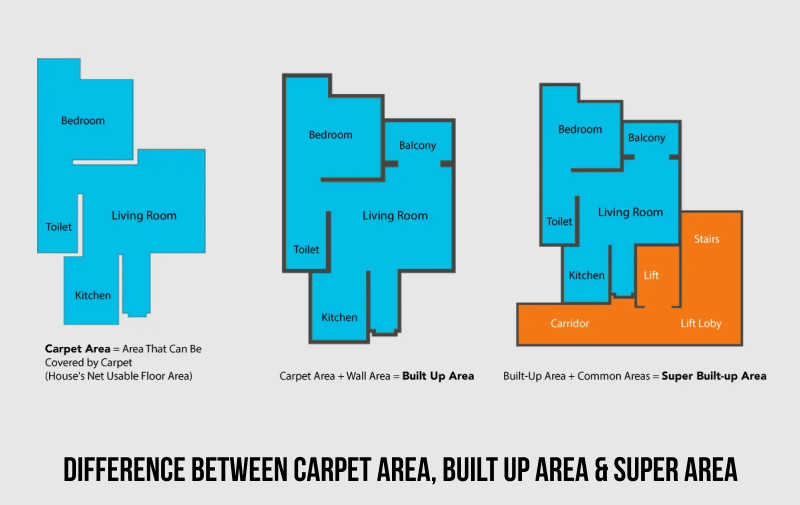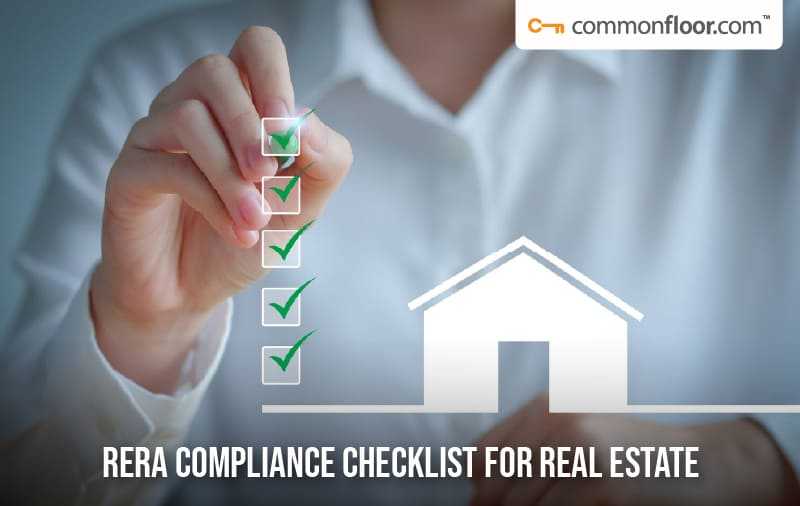Your guide for redevelopment and taxation of property-Part 1
 Buildings have their own life span depending upon the quality of construction, quality of land on which it is constructed, quality of maintenance it was subject to, climatic condition of the surrounding and so on. After a certain age, due to wear and tear and exposure to natural elements every building becomes ragged and maintenance cost escalates. Then it becomes economically more prudent to pull it down and construct a new building on that space. This process is known as redevelopment of property.
Buildings have their own life span depending upon the quality of construction, quality of land on which it is constructed, quality of maintenance it was subject to, climatic condition of the surrounding and so on. After a certain age, due to wear and tear and exposure to natural elements every building becomes ragged and maintenance cost escalates. Then it becomes economically more prudent to pull it down and construct a new building on that space. This process is known as redevelopment of property.
In metros and other Tier-II and Tier-III cities land has become scarce commodity due to mismatch in demand and supply, prices have skyrocketed hence builders are now exploring the redevelopment space.
Advantages of Redevelopment
The process of redevelopment is beneficial both to a builder as well as owner(s) of the property(ies). Where vacant land is not available or is available at astronomical prices, it provides the builder with alternative opportunity for a new venture.
The owner(s) of the property gets rid of abnormally high maintenance cost, old and outdated structure is replaced with swanky new building, life span of the new building starts to run from the current date and a lot of additional space gets unlocked and brought to productive use. So redevelopment is a win-win situation for both the parties.
Process of Redevelopment
 To woo the owners of the property targeted for redevelopment, the developers offer various incentives such as extra floor area, better amenities and facilities, alternative accommodation with cost of shifting etc. However this proposition has it’s own share of disadvantages as well, mainly caused due to dishonesty, greed and over smartness on either or both part. The completion of the process is hardly free of hassles, disputes, heart burn and on most occasions, of litigation. However most of these can be sorted out / safeguarded by mutual negotiation, discussion, clarification and written agreement prior to commencement of the venture. From the owners’ perspective proper process for redevelopment must be followed with emphasis on the following areas to avoid future tug of war.
To woo the owners of the property targeted for redevelopment, the developers offer various incentives such as extra floor area, better amenities and facilities, alternative accommodation with cost of shifting etc. However this proposition has it’s own share of disadvantages as well, mainly caused due to dishonesty, greed and over smartness on either or both part. The completion of the process is hardly free of hassles, disputes, heart burn and on most occasions, of litigation. However most of these can be sorted out / safeguarded by mutual negotiation, discussion, clarification and written agreement prior to commencement of the venture. From the owners’ perspective proper process for redevelopment must be followed with emphasis on the following areas to avoid future tug of war.
Consent of the members of a Co-operative Housing Society
Vide an order dated 03.01.2009 issued by the Government of Maharashtra under section 79A of Maharashtra Co-operative Societies Act, 1960, a special General body meeting of the Society must be convened to appoint a builder for redevelopment. This meeting must be attended by at least 75% of the total members and at least 75% of the members present in the meeting must agree to appointment of a builder. For vacating the premises all members must agree and vacate their respective property as per resolution passed in the General Body Meeting. Dissenting member (if any) may be vacated by legal process.
Project Management Consultant
 An architect or a professional experienced in this line of business may be appointed as PMC to act on behalf of the society and to safeguard the interest of the members. It is the nodal body to initiate, oversee and ensure smooth completion of the process including inviting tenders from reputed builders for the work. It also liaises between the various bodies such as builder, society, civic body and other statutory bodies. It also ensures that documents such as society’s maintenance bills, property tax papers, agreements, municipal papers etc, are in place. Fee to such PMC should be paid by the society, which may be later on reimbursed by the builder or as per terms agreed by and between the society and the builder, but in no circumstances PMC should be directly paid by the builder otherwise his loyalty to the society may get diluted.
An architect or a professional experienced in this line of business may be appointed as PMC to act on behalf of the society and to safeguard the interest of the members. It is the nodal body to initiate, oversee and ensure smooth completion of the process including inviting tenders from reputed builders for the work. It also liaises between the various bodies such as builder, society, civic body and other statutory bodies. It also ensures that documents such as society’s maintenance bills, property tax papers, agreements, municipal papers etc, are in place. Fee to such PMC should be paid by the society, which may be later on reimbursed by the builder or as per terms agreed by and between the society and the builder, but in no circumstances PMC should be directly paid by the builder otherwise his loyalty to the society may get diluted.
Selection of builder
Either the society by itself or through PMC (if appointed as above) should finalise a developer from the tenders received by it and after comparing data of participating/short listed builders. A developer should be selected, on the basis of his credentials, merits, reputation, experience and the benefits offered. Finally the selected builder must offer to the society the detailed plan of the redevelopment of the property containing all the terms and conditions. Again the entire plan including detailed terms and conditions offered by the builder should be discussed by all the members of the society and a broad consensus must be achieved.
Documents required
The society must keep ready these documents for onward delivery to the builder as and when required-
(A) Conveyance deed
(B) Society Registration certificate
(C) Resolution passed in the General Body meeting for redevelopment
(D) List of members with their respective carpet areas
(E) City Survey Plan and property card for the plot
(F) Development Plan remarks, if under D.P. area or Town Planning remark if under town planning Scheme
(G) Sanctioned plan for redevelopment.
Execution of development agreement
A competent legal professional, having experience in real estate matters, must be appointed by the society / PMC to draft a “Redevelopment Agreement”. If such agreement is drafted by the developer’s lawyer then it must be approved by the lawyer of the society. This agreement must cover the entire gamut of redevelopment process including time frame for completion of redevelopment, transfer of development rights, additional area offered, corpus money, alternate accommodation, rent in lieu of alternate accommodation, two way shifting expenses/ charges, new / additional amenities in the redeveloped building etc. The following aspects must be especially taken care of in the agreement to avoid future tussle and ultimately leading to litigation.
A) Security Deposit:– To keep a tight leash on the developer and to maintain his interest in the project security deposit from him must be insisted upon. The amount of such deposit may be equal to the cost of construction of rebuilding.
B.) Facilities offered by the builder:- All the facilities and amenities such as lift, power back up, kids’ play area, pool, gym, spa etc as agreed and offered by the developer must be incorporated in the agreement with full details and specification.
C) Transfer of Development Rights (TDR):- It is necessary for giving extra floor area as promised by the builder. The builder is required to purchase TDR from market and load it on the property being redeveloped. It must be mentioned in the agreement.
D) Corpus Fund:- This money is paid to the owner/members by the developer for the dual purpose, one, being the inconvenience caused to the owner/member in shifting residence for the period of redevelopment and the other being municipal taxes payable after redevelopment of the property. It must be quantified and included in the agreement.
E) Bank Guarantee:- The developer must furnish a bank guarantee as a proof of his commitment to complete the project within the stipulated time frame. It must be equal to at least 20% of the total project cost. It is a cushion against delay in completion and must be clearly indicated in the agreement.
F) Shifting Charges:- Before demolition of the existing structure occupants have to be shifted to the alternate accommodation and again after due completion of redevelopment they have to be shifted back to the new premises. This both way shifting involves cost and the owner / occupants are entitled to get this expense from the builder. This also must be clearly mentioned in the agreement.
Sanction of plan by civic body
After execution of the agreement as above the plan is to be submitted to the appropriate civic body for sanction. Thereafter loading of “Transfer of Development Rights (TDR)” is done by the builder. It is a process by which the developer can offer additional area / space to the members (owners) of the society and this process instills confidence of the society in the developer. After loading and approval of TDR “Intimation of Disapproval (IOD)” has to be obtained from the said civic body and conditions mentioned therein are to be complied with by the builder.
Shifting of members to alternative accommodation
After obtaining the IOD members have to vacate their flats and are shifted to alternate accommodation, preferably in the same area, where provided for by the builder. However where it has been mutually agreed to pay in cash towards the monthly rent in lieu of alternate accommodation, the builder should provide advance payments for a year to member(s) for rent of the new accommodation. For the subsequent year he should provide post-dated cheques.
Demolition of existing building
After all the members of the society have vacated their flats the existing building is demolished. Thereafter the concerned civic body issues “Commencement Certificate” to the builder for onward construction of the new building as per sanctioned plan.
Completion of construction and obtaining Occupancy certificate
After completion of the construction, strictly as per sanctioned plan and in accordance with the terms and conditions stipulated with the sanction, “Occupancy Certificate” is issued by the sanctioning authority (the civic body) and possession of the flats is handed over to the owners in accordance with the terms of the “Redevelopment agreement”.
For “Implication of Tax on redevelopment” read “Your guide for redevelopment and taxation of property-Part 2”.
 |
This article is contributed by -IndianPropertyLawyers, simplifying property
|







